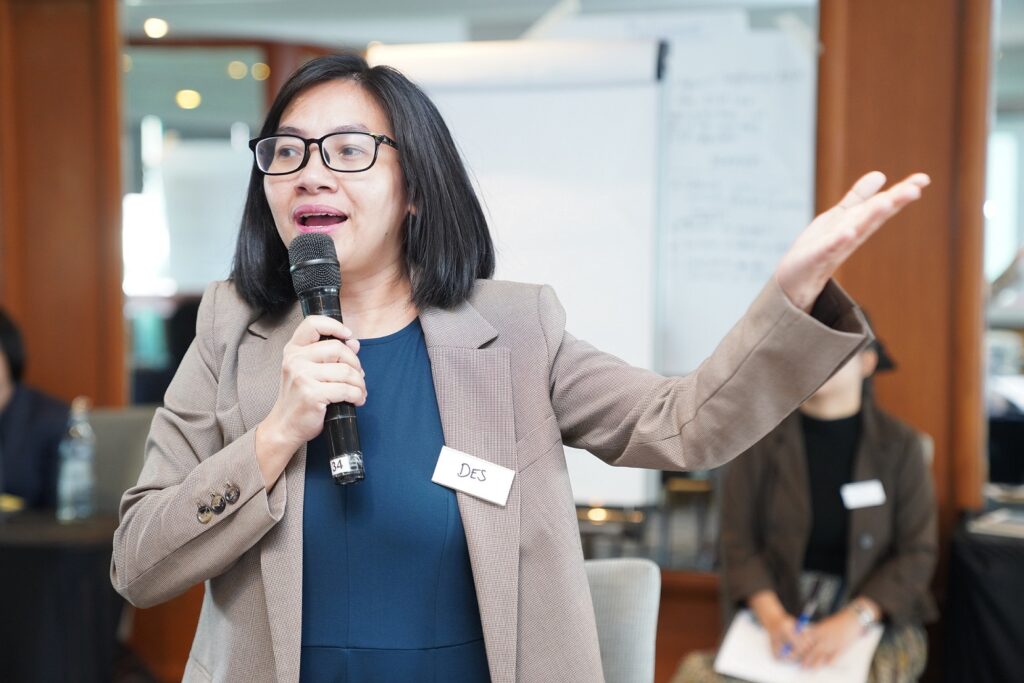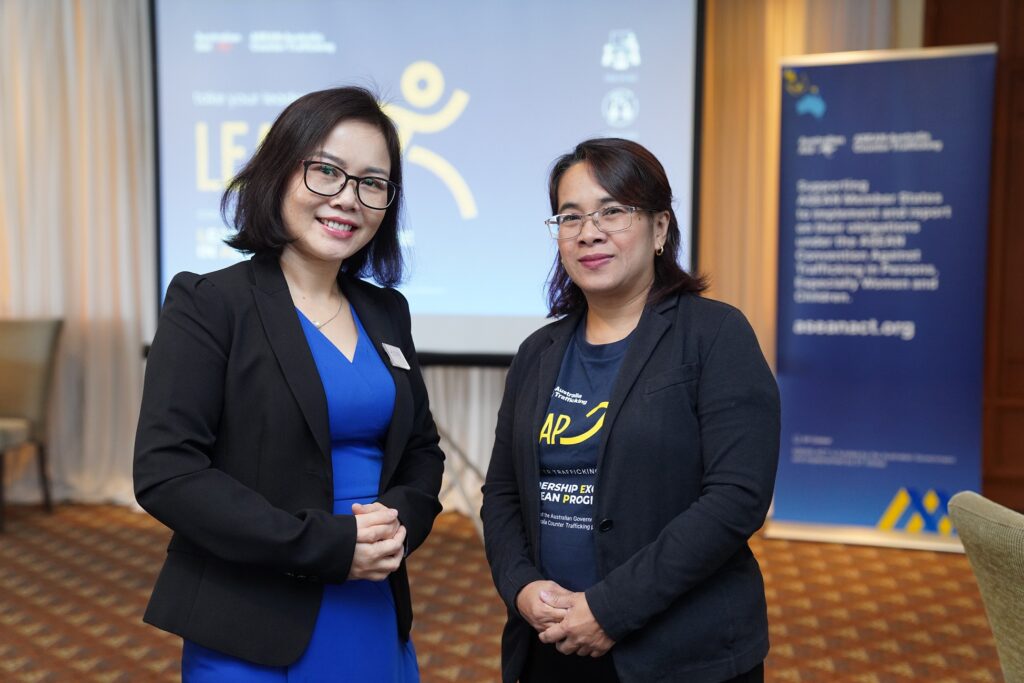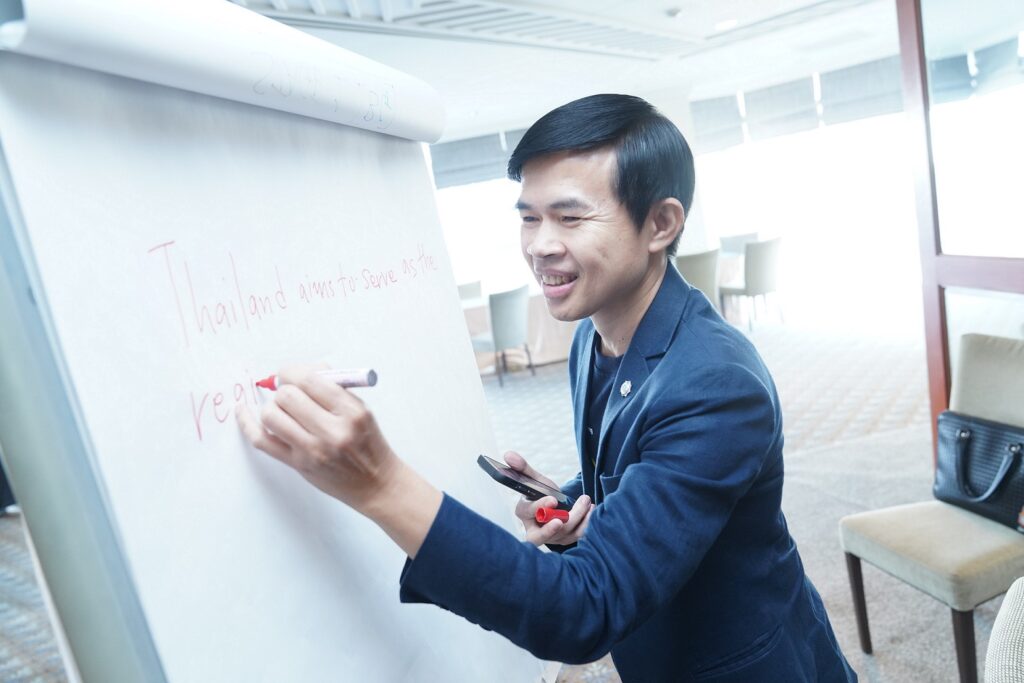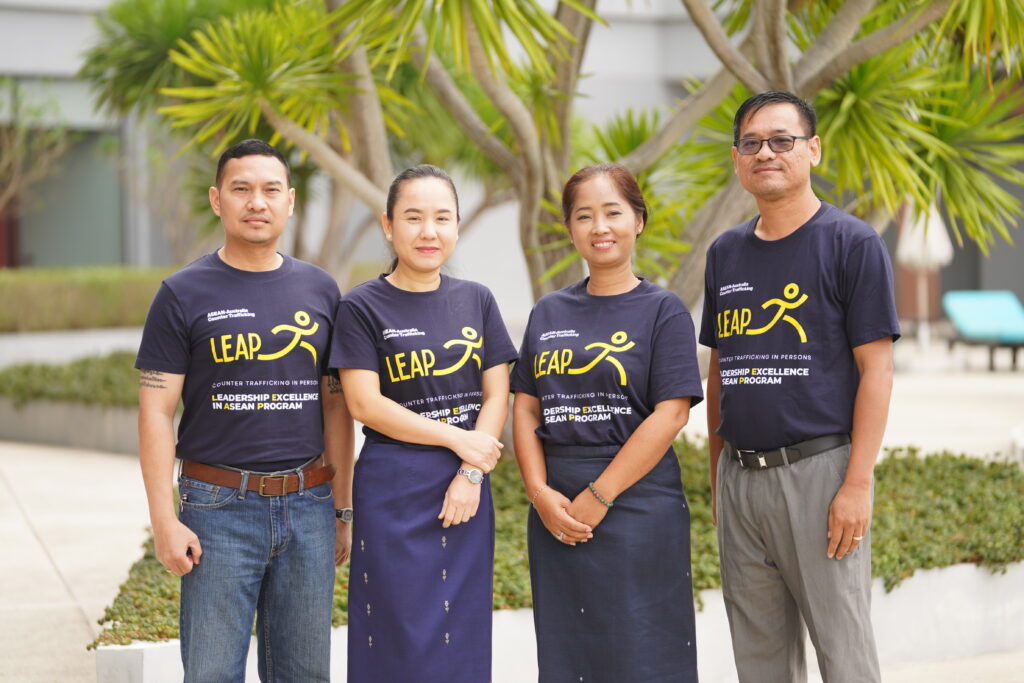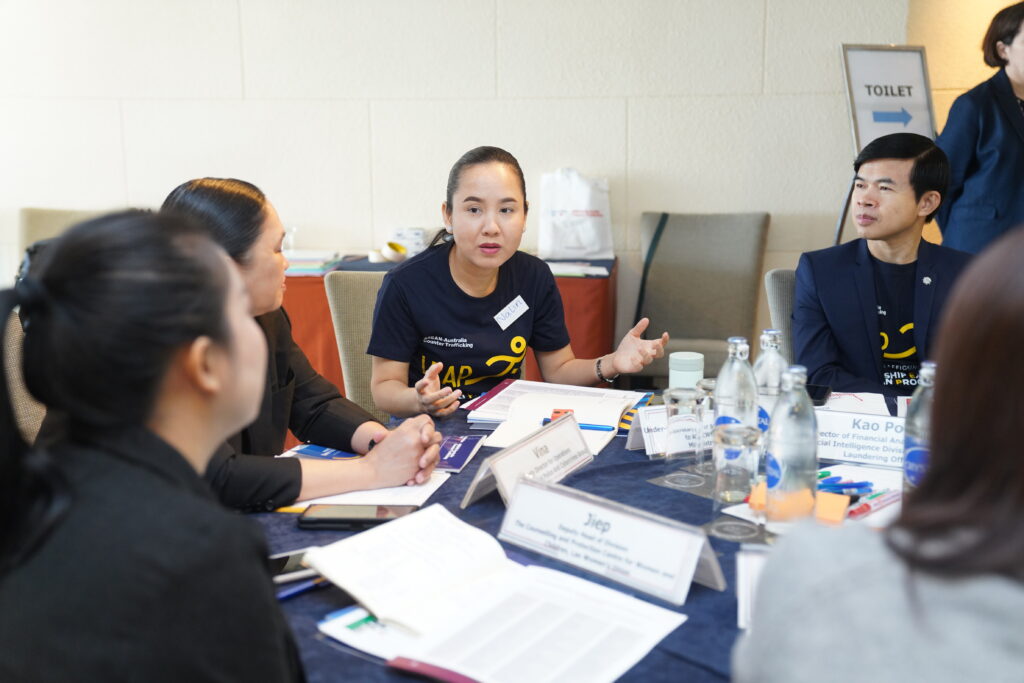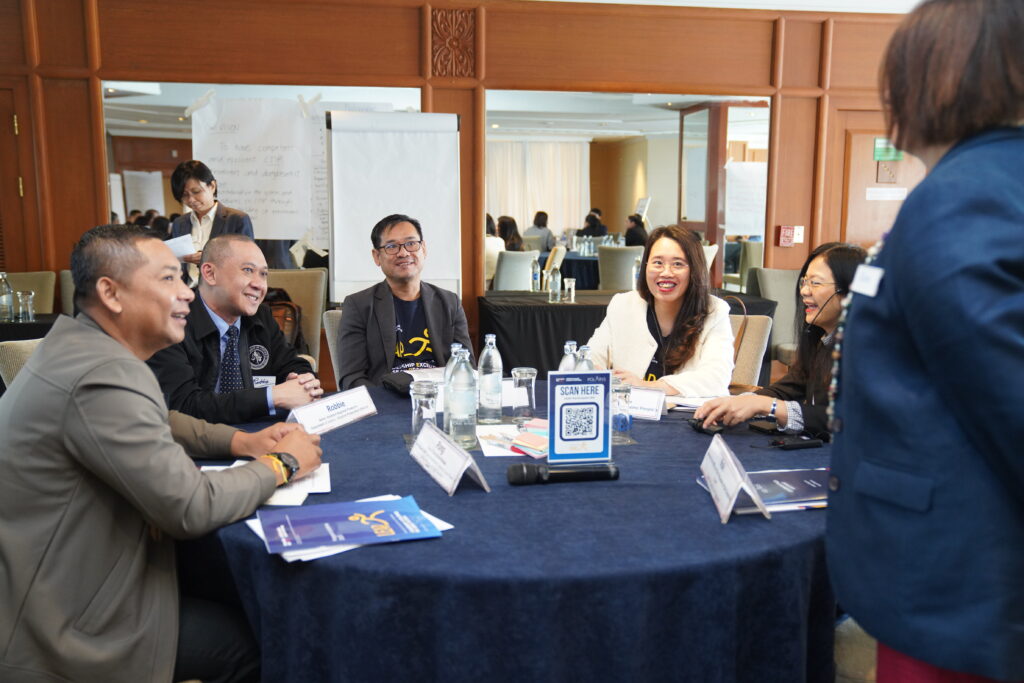In a sunlit room without the typical meeting formalities, judges, police officers, financial investigators, prosecutors and social workers from five ASEAN countries were asked to arrange themselves by years of counter-trafficking experience without speaking a word.
This moment highlighted the power of non-verbal communication, which transcends language barriers, as well as the sizeable collective expertise and knowledge in the room. This was the first activity of many over 3 full days which forged connections and comradery amongst the first cohort of senior government officials undertaking a leadership program to counter trafficking in persons.
The program is an initiative of the Australian Government-funded ASEAN-Australia Counter Trafficking program, designed to cultivate adaptive and resilient leaders who can navigate the complex landscape in which trafficking and related crimes occur.
The Counter Trafficking in Persons Leadership Excellence in ASEAN Program (or aptly coined as ‘LEAP’) recognises that there are limited opportunities within Southeast Asia for counter trafficking professionals to develop and hone their leadership skills.
The program is based on the premise that effective change requires leaders with expertise beyond the technical field of counter trafficking, who are capable of driving sustainable solutions to complex challenges.
The 12-month in-service program takes participants through a transformative leadership journey which includes in-person and virtual learnings, one-on-one coaching sessions, group problem-solving related to real-life scenarios, and capstone project that leaders will undertake by country to develop a solution to a specific institutional challenge identified by the group.
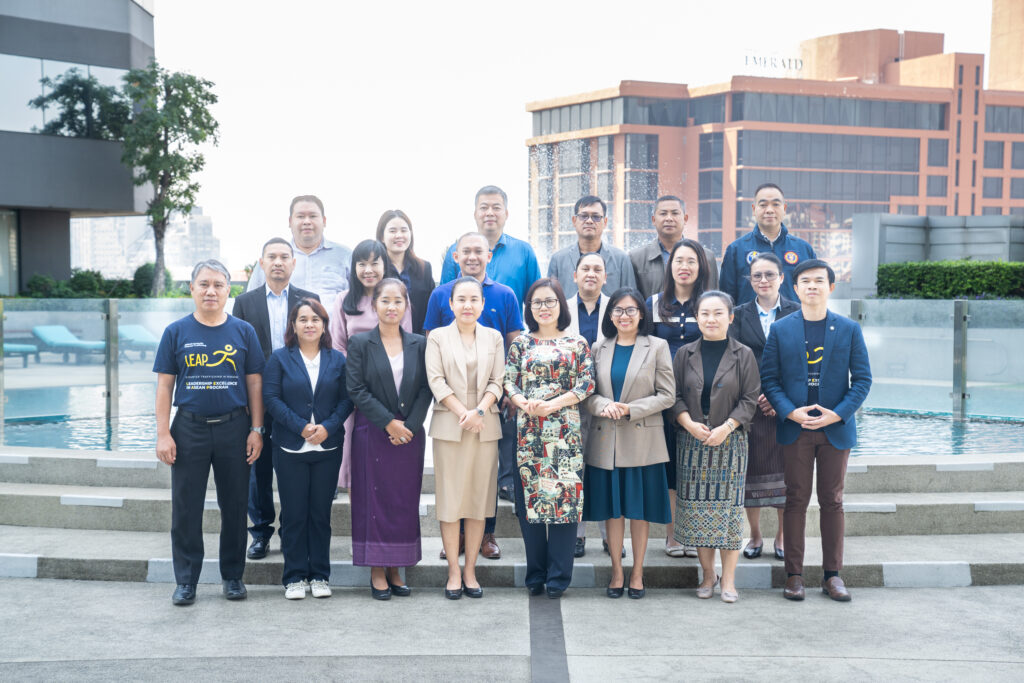
The first module brought all 20 leaders from Cambodia, Laos, the Philippines, Thailand and Vietnam together in Bangkok (14-16 January 2025). The introductory session focused on understanding the interconnectedness of systems that impact leaders, and how motivations, incentives and perceptions influence behaviour in workplace settings.
Each of the participants received a personalised analysis of their leadership style, based on the Strengths Deployment Inventory (SDI) tool which explores human motives and strengths to improve the quality of working relationships.
To nudge LEAP leaders towards a ‘growth mindset’, a 360-degree evaluation process was undertaken which provided feedback from supervisors, peers, and subordinates. Many participants shared that this was their first opportunity to reflect on and unpack their own leadership style and receive constructive feedback from others on how to improve.
Throughout the week, the LEAP leaders were inspired and challenged by several keynote speakers from the private sector and international organisations who provided insights on their own leadership journeys and how they overcame gender, cultural and other barriers to achieve more inclusive institutions.
By the end of the week, there was a shared understanding that while the combined years of experience and dedication among the LEAP delegates is something to be acknowledged and celebrated, leadership itself is a journey not an endpoint with opportunities for continuous learning and growth.
ASEAN-Australia Counter Trafficking has engaged expert professional development facilitators Polaris Group Consultancy to design and deliver the pilot project.
Philippines 2025 CTIP LEAP delegates featured in this SBS Filipino News podcast.
Share the Australian Ambassador to ASEAN social media post
